In recent years, a combination of political upheaval, regional conflicts, mass displacement, and climate change has meant that Malians are increasingly contending with food insecurity. In response, Cordaid’s Jege ni Jaba (JNJ) programme has a two-fold aim: improve food security throughout the state and create economic opportunities within the value chains, particularly for women and youth.

Jege ni Jaba means ‘fish and onion’ in Bambara, an ethnolinguistic group from the upper Niger region of Mali. The West African country is home to over 80 languages and 21.9 million people, most of whom are under twenty-five.
We met some project leaders, experts, young people, and women involved in Jege ni Jaba, particularly the aquaculture sector in and around Bamako. Here’s how the project has changed their lives and communities.
Watch this video about Cordaid’s work in Mali:
Fleeing violence and securing employment
Boubacar Guindo, a 25-year-old from Mopti (a region some 600 km northeast of Mali’s capital, Bamako), is one of the young people who found employment in the fish value chain via Jege ni Jaba. In 2019, Boubacar and his family were forced to flee their village after a lethal armed attack. They left with nothing, not even food, and encountered many difficulties when they reached the nearby town of Bankass.
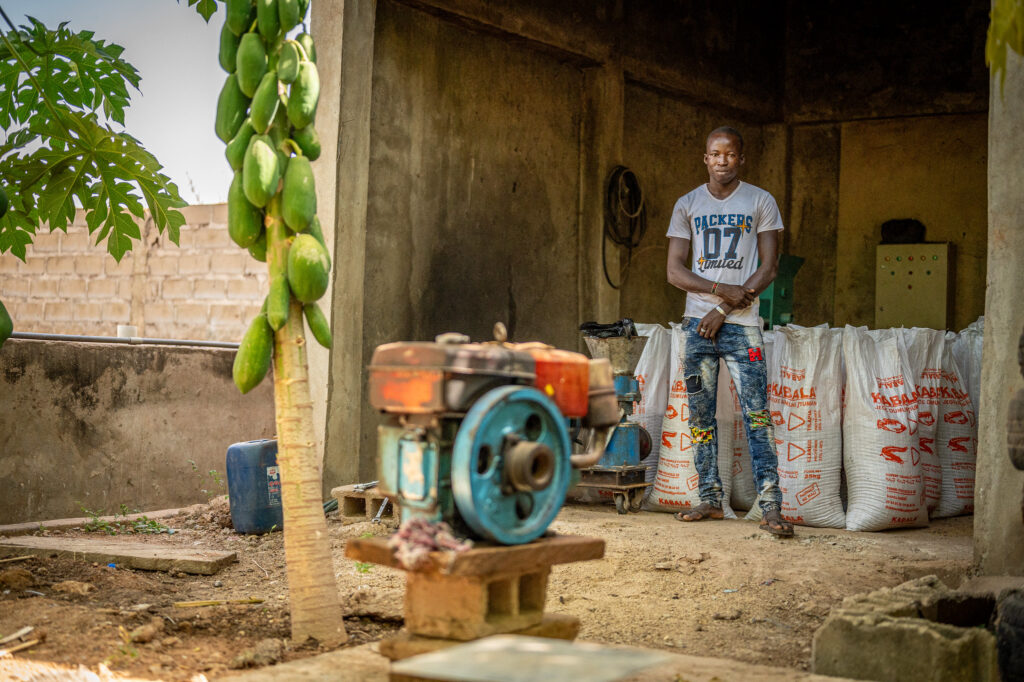
After a week in Bankass without a home or belongings, they moved to Sélingué, 140km south of Bamako. In Boubacar’s hometown, people’s livelihoods centred around agriculture, so not having a large field to farm greatly impacted his family. They decided to split up to earn money, and that’s how Boubacar found himself at Soumba’s hatchery on the outskirts of Bamako.
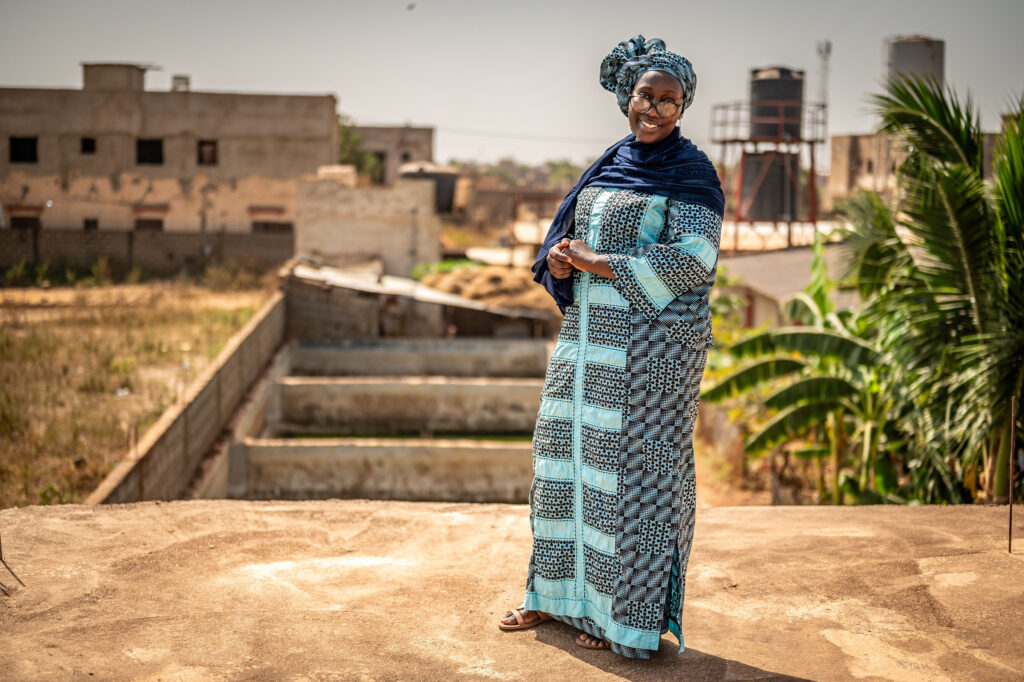
Soumba’s ‘family business’
Guy Yaovi Koucou, Cordaid’s aquaculture expert in Mali, explains how Jege ni Jaba supports people starting hatcheries by drafting building plans and overseeing construction and later assisting with the capacity building of the hatcheries: “We support the development 100%. We provide the equipment, the inputs to start up, the training, and we work at the level of production to make the activity profitable.”
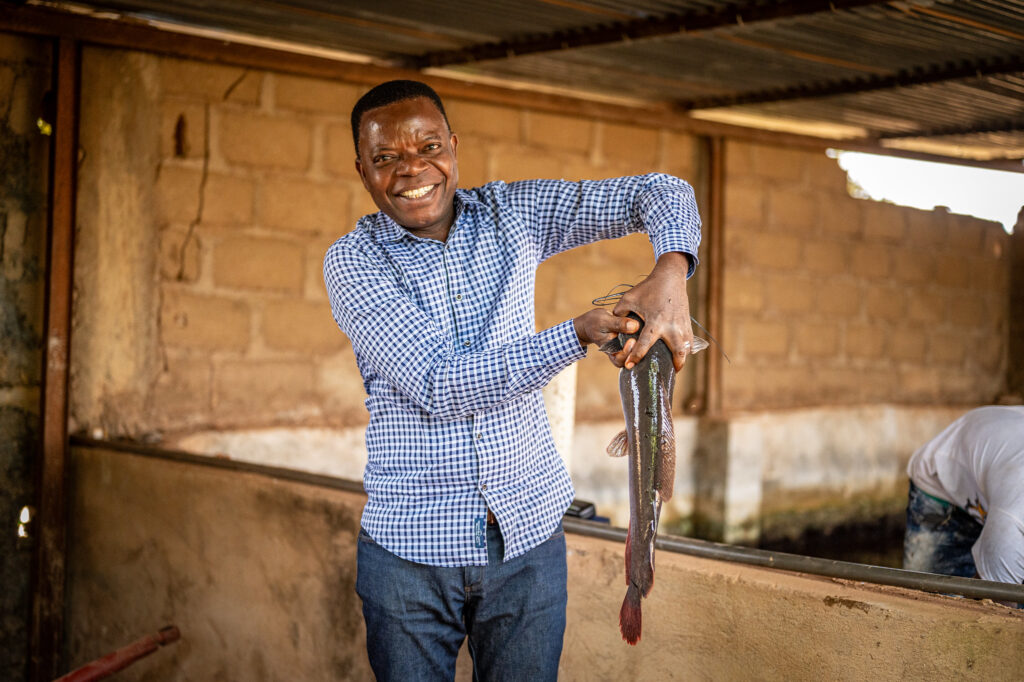
“We support the development 100%.”
This is exactly how Cordaid worked with Soumba. Jege ni Jaba provided her with technical support, small equipment, training and quality breed stocks to get her business on its feet. Soumba is a successful entrepreneur who employs Boubacar and other young people in the region: “They are very motivated. We get along really well. We’re like a family.”
Boubacar is responsible for fish reproduction in Soumba’s hatchery; he monitors the growth and health of the fingerlings (juvenile fish) daily. Because of his work at Soumba’s hatchery, Boubacar can send some of his earnings to his family. “I send some of the money I earn to my family and keep the rest for my needs.”
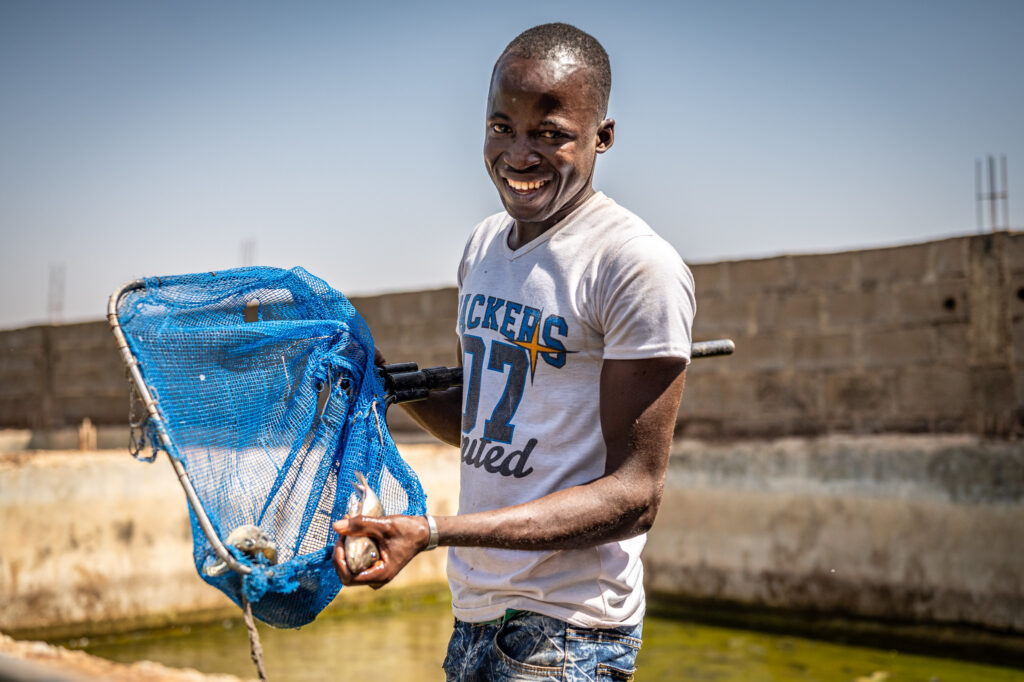
“They are very motivated. We get along really well. We’re like a family.”
From rooftop hatcheries to fish farms
Once an aquaculture novice and now a successful hatchery owner, Soumba has her eyes set on ways to expand her operations. “I’m ambitious. I want a larger hatchery. A more modern one. In five years, I will be among the best in Mali”. Soumba’s passion for entrepreneurship speaks to the rapidly changing situation for women in Mali. Many women are defying traditional gender roles by embarking on careers in sustainable livelihoods, both outside or within the home.
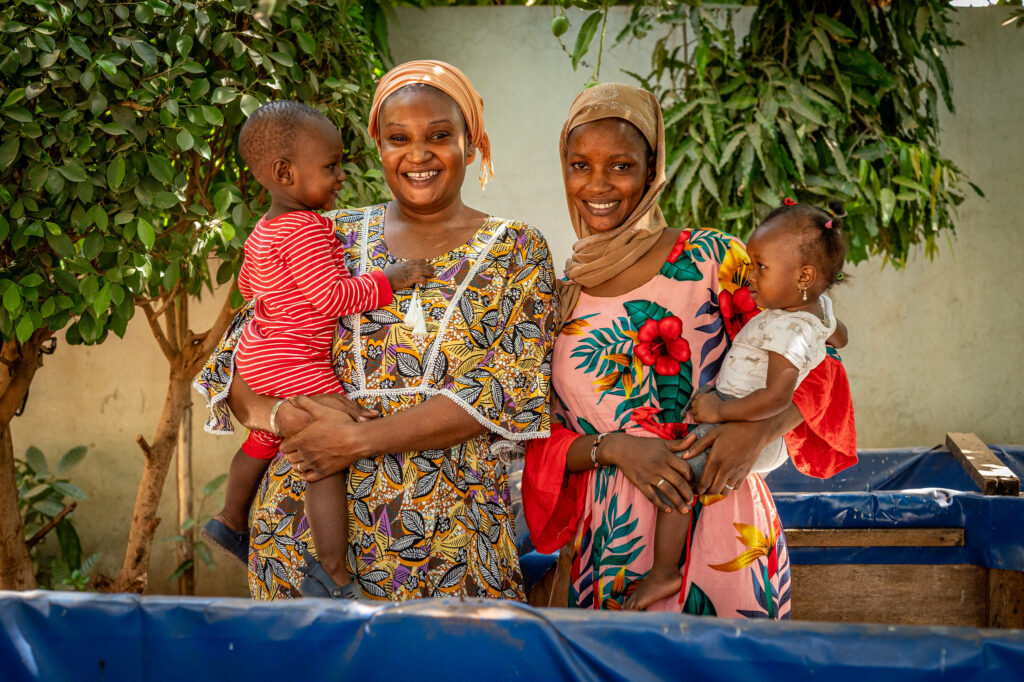
Indeed, Jege ni Jaba permits women like Oumou Sy to run a profitable side business from the comfort of their homes. As a mother of a young child, running a small fish farming operation from her patio and rooftop suits Oumou well: “My job is right at my home, which allows me to combine my work with all my other activities.”
“I’m really ambitious. I want a larger hatchery. A more modern one. In five years, I will be among the best in Mali.”
This home-business approach is also appealing to young people in Mali. Mohammed runs his fish tank catfish production from his building’s rooftop in the heart of Bamako, and like Oumou, is one of the 100 new fish farmers supported by Jege ni Jaba who collectively run around 500 overground fish tanks in Mali as successful micro-enterprises. The increasing popularity of small-scale entrepreneurial fish farming, both in the urban (overground tanks) and rural settings (floating cage, cement pond and fish pen farming), also comes in response to climate change; amongst other factors, disrupted seasons and infrequent rainfall has diminished fish stocks in the Niger river, creating a growing scarcity in the availability of fresh fish for consumers.
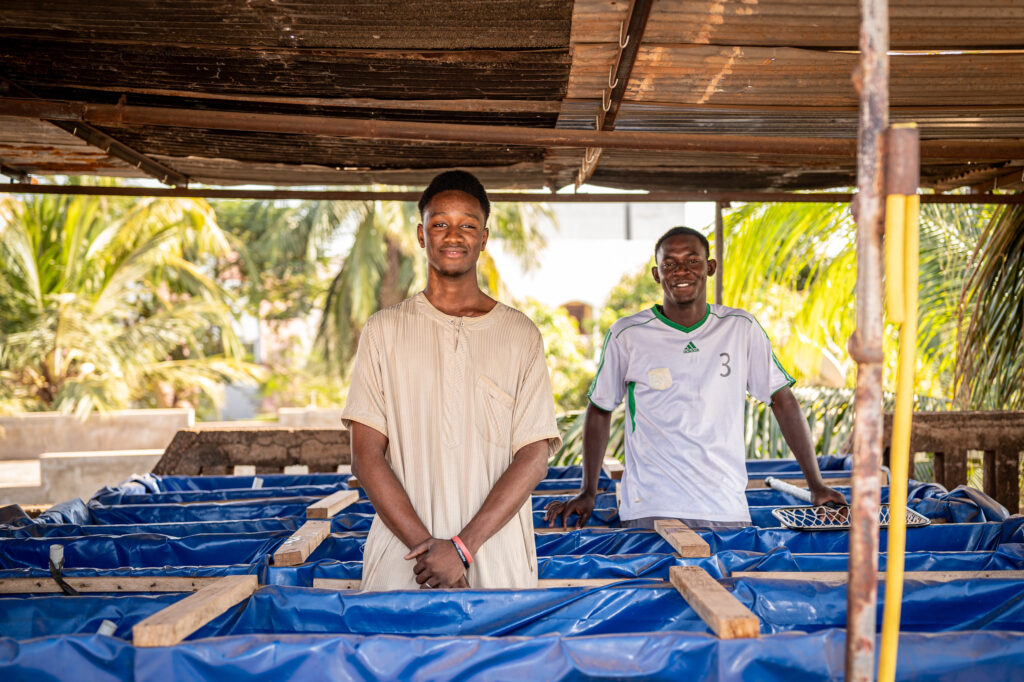
And these enterprises are only growing. Like Soumba, Oumou also has ambitions for business expansion. She plans to use her profits to buy a farm and to start using floating cages at the nearby river. Jege ni Jaba’s support of female entrepreneurship encourages women to achieve financial independence. Soumba says, “I tell other women to be courageous and fight. We must not sit down and say, ‘I am married, and my husband will take care of me’. That time is over.”
The importance of strengthening Mali’s food security
The broader context that Boubacar, Soumba, Oumou and Mohammed are working in is explained by Tiécoura Traore, Assistant Project Manager in Cordaid’s Strengthening Agricultural Value Chains for Food Security Program (PRCA-SA) in Mali. The PRCA-SA, financed by the Dutch government, emphasises the role of the private sector in developing a sustainable agriculture sector in Mali for the benefit of producers, consumers and the environment alike. So, besides fish and onion, the program also works to strengthen the potato value chain.
“Livestock farming does not work well in times of drought and disease.”
In light of the insecurity Malians face from conflict and climate change, Tiécoura explains that only working on improving governance in Mali isn’t enough. He believes food security programmes are necessary to meet people’s basic needs, especially in fragile regions. For instance, in Mali’s north, the authority of the central state in Bamako has been challenged for decades, especially by certain ethnic groups who feel neglected, such as the Tamasheq and Arabs. A succession of insurrections, coups and armed attacks (such as the one on Boubacar’s village in Mopti) has disrupted food security and supply chains across the country, but especially in Mali’s north.
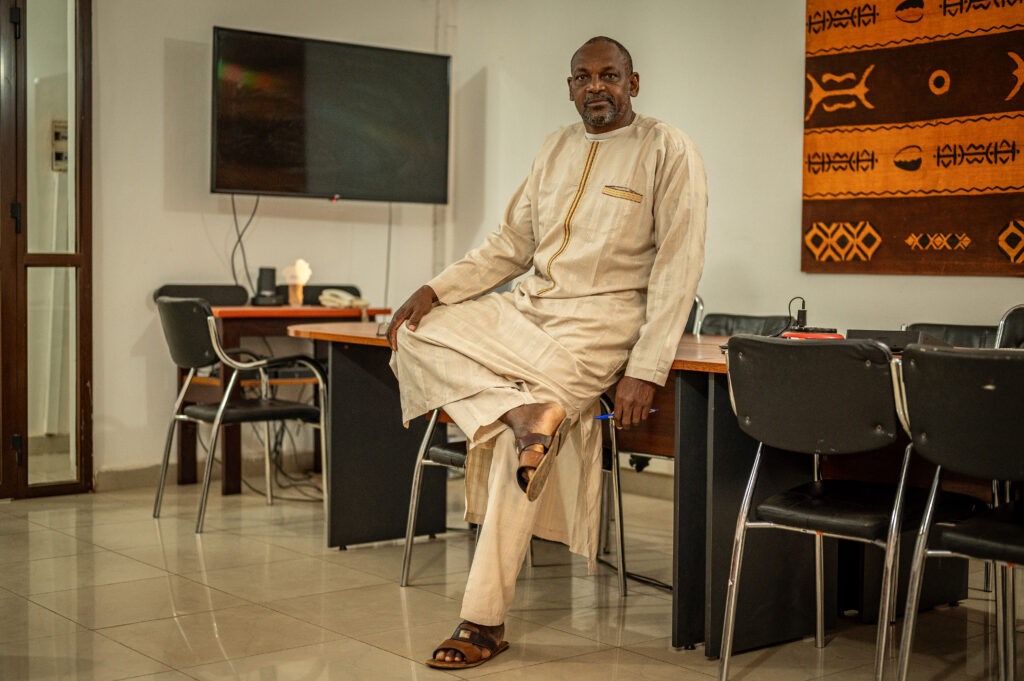
In places like Tombouctou, where animal husbandry is traditionally practised, climate change is an added complication: “Livestock farming does not work well in times of drought and disease,” says Tiécoura. Indeed, many livestock farmers in these areas are trying to switch to agriculture, specifically market gardening, which is increasingly regarded as a more viable source of income and more beneficial for local consumers.
Better still, Tombouctou’s climate favours market gardening, and after growing potatoes, farmers are also finding success with watermelon, okra, cabbage, tomato, lettuce, cucumber and peanut crops. Jege ni Jaba, as part of the PRCA-SA, assists these farmers with good farming practices, irrigation kits and storage solutions for seed production to encourage their transition from livestock farming to horticulture. Tiécoura notes that the enthusiasm is palpable among youth: “People are looking for activities that allow them to thrive in a context of emerging peace.”
Will Jege ni Jaba ‘save Mali’?
As phase two of the programme concludes, Tiécoura expresses his pride in the interventions of Jege ni Jaba so far: “This work gives us great moral satisfaction, as we contribute to solving producers’ problems and supporting the most vulnerable. It’s more than just about money; it’s about service and positively impacting local communities.” And looking forward to a new project phase, Tiecoura is excited about the real potential for Mali’s north: “We are ready to continue our efforts to promote sustainable and diversified agriculture in Tombouctou.”
“People are looking for activities that allow them to thrive in a context of emerging peace.”
Likewise, from the perspective of the fish value chain, Guy has similar praise: “We can say that Jege ni Jaba has completely revolutionised fish farming in Mali.” For him, the project can “save Mali”, bringing greater food security to the country and the job opportunities it creates for people like Boubacar, Soumba, Oumou and Mohammed. Crucially, he believes the project has had a wider effect by presenting a positive image of Mali to the world: “It makes people talk about Mali beyond our borders.”
Written by Bryony Harris.
Images: Mickael Franci / Cordaid.
